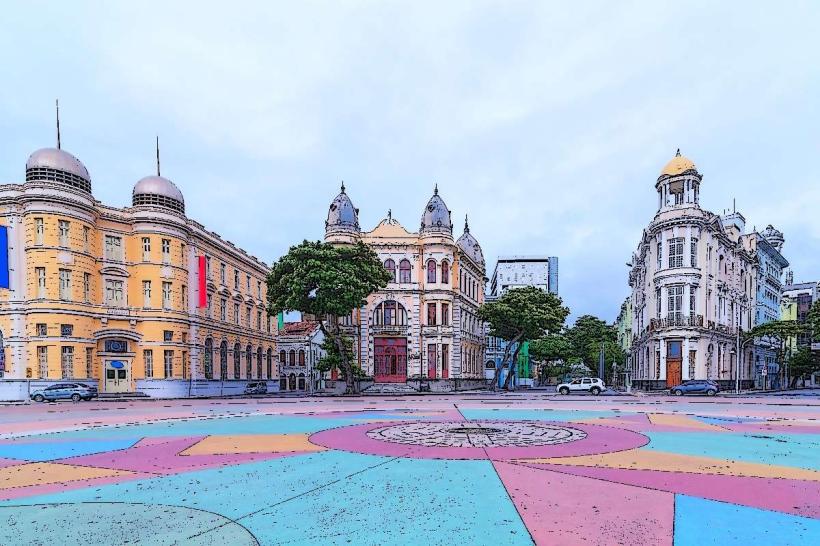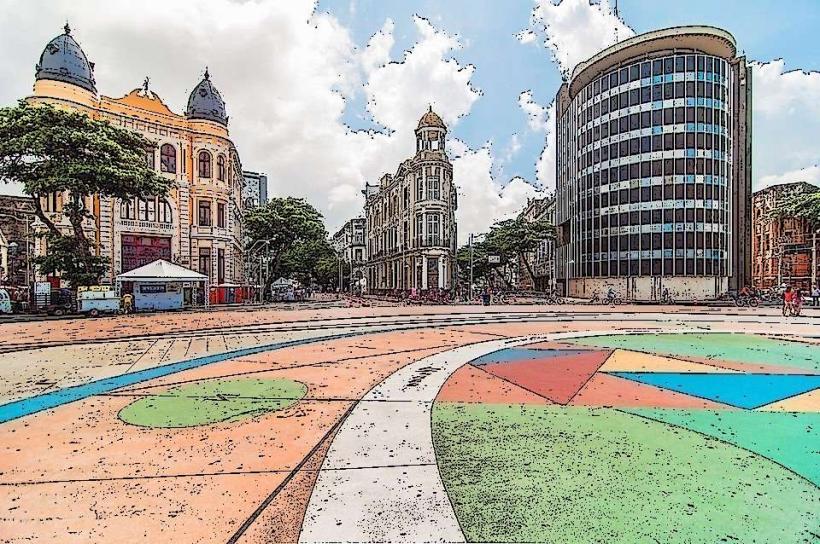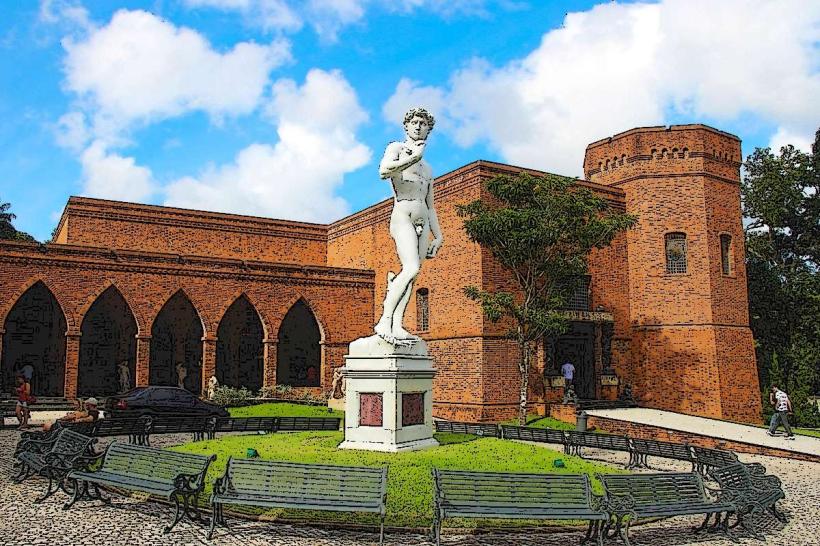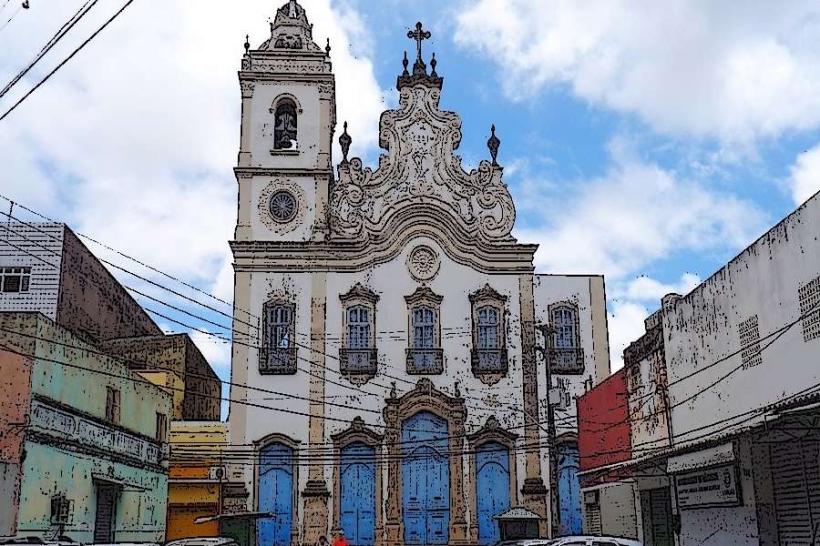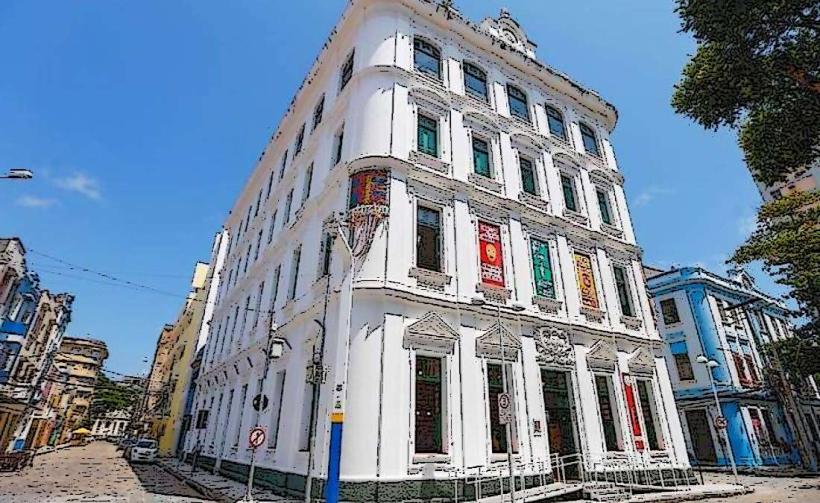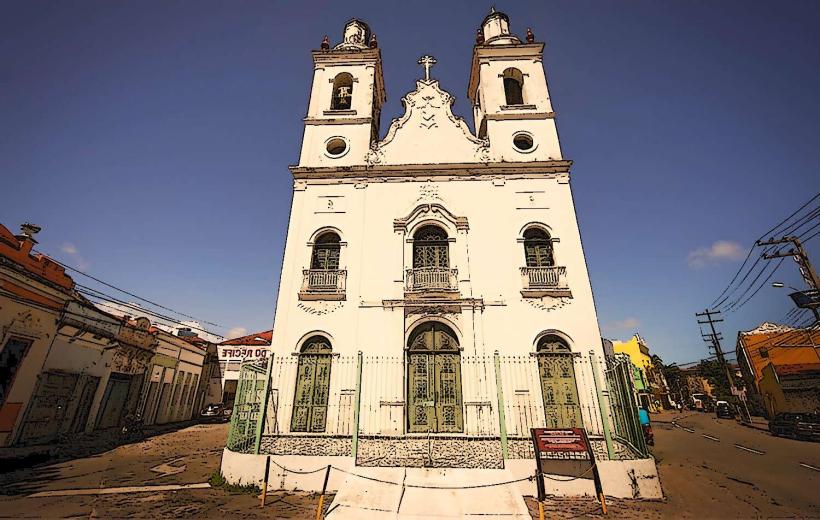Information
Landmark: Kahal Zur Israel SynagogueCity: Recife
Country: Brazil
Continent: South America
Kahal Zur Israel Synagogue, Recife, Brazil, South America
Kahal Zur Israel Synagogue is a historic Jewish house of worship located in Recife, Brazil.
It is recognized as the oldest synagogue in the Americas.
Visual Characteristics
The synagogue features a whitewashed facade with blue-painted window frames and doors. The structure is a single-story building with a tiled roof. Inside, the main prayer hall has wooden floors and benches, with a central bimah and an ark containing Torah scrolls. The walls are painted in a neutral tone, and the ceiling is supported by wooden beams.
Location & Access Logistics
The synagogue is situated at Rua do Bom Jesus, 197, in the historic district of Recife. It is approximately 2 kilometers east of the city center. Access is via Rua do Bom Jesus, a pedestrianized street. Limited street parking is available in the surrounding area, though it is often congested. Public transport options include city buses that stop near the Praça da República, a 10-minute walk away. The closest metro station is also Praça da República.
Historical & Ecological Origin
Kahal Zur Israel was founded in 1640 by Portuguese Sephardic Jews who had emigrated from the Netherlands. It served the Jewish community during the Dutch occupation of Brazil. The original building was constructed on this site, though it has undergone renovations and reconstructions over the centuries. It is not a natural formation but a man-made structure with significant historical and religious importance.
Key Highlights & Activities
Visitors can explore the synagogue's interior, including the main sanctuary and the museum exhibits detailing the history of Jews in Brazil. Guided tours are available, providing context on the building's architecture and historical significance. The adjacent courtyard offers a space for reflection.
Infrastructure & Amenities
Restrooms are available on-site. Limited shaded areas are present in the courtyard. Cell phone signal (4G) is generally available within the building and courtyard. Food vendors and cafes are located on Rua do Bom Jesus and surrounding streets.
Best Time to Visit
The best time of day for photography is mid-morning or late afternoon when natural light enters the sanctuary. The best months for visiting are generally from March to June or August to November, avoiding the peak rainy season and the hottest summer months. No specific tide requirements apply.
Facts & Legends
A unique aspect of Kahal Zur Israel is its connection to the first Jewish settlement in the Americas. The synagogue's original name, "Mikvé Israel," translates to "Hope of Israel."
Nearby Landmarks
- 0.1km North: Embaixada dos Bonecos Gigantes de Olinda
- 0.3km Southwest: Paço do Frevo
- 0.5km West: Mercado de São José
- 1.0km Southeast: Marco Zero
- 1.5km Northwest: Museu do Estado de Pernambuco

